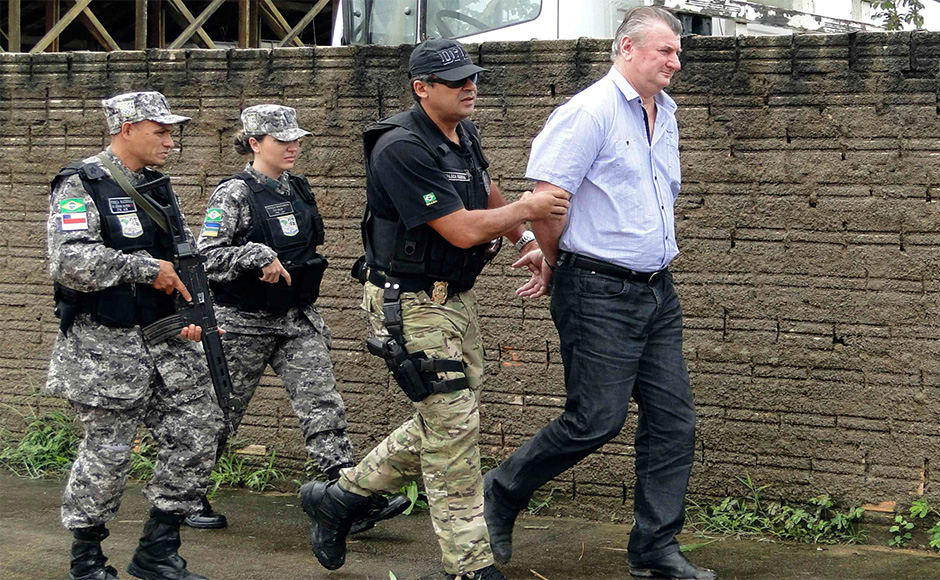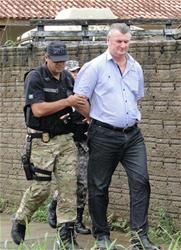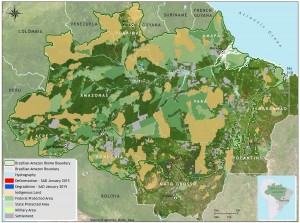
We are shrinking rain forests – Stuart Pimm

Brasil has detained a land-grabber thought to be the Amazon’s single biggest deforester, the country’s environmental protection agency said. The Amazon rainforest has been in existence for at least 55 million years, the region home to about 2.5 million insect specie, tens of thousands of plants, and some 2,000 birds and mammals and to date, at least 40,000 plant species, 2,200 fishes, 1,294 birds, 427 mammals, 428 amphibians, and 378 reptiles have been scientifically classified in the region. One of the major reason for the decline of wildlife in the Amazon, which is home for one of the most species-rich places on Earth is due to dwindling forest”. “About two-thirds of all species on land are in tropical rainforests — and we’re shrinking those rain forests,” Stuart Pimm, a Duke University biologist. “In the Americas, the greatest numbers of species on the brink of extinction are in the coastal forests of Brasil and the northern Andes and Ecuador.
The Brasilian Institute of Environment and Renewable Natural Resources said Ezequiel Antonio Castanha, was detained last week in the state of Para, operated a network that illegally seized federal lands, clear-cut them and sold them to cattle grazers. The agency blames the Castanha network for 20 per cent of the deforestation in Brazil’s Amazon in recent years. Castanha will face charges including illegal deforestation and money laundering, and could be sentenced to up to 46 years in prison, according to environmental protection agency.
Officials also said late last year that 1,870 square miles (4,848 square kilometers) of rain forest were destroyed between August 2013 and July 2014.
Around Novo Progresso, 23, 713 square miles (38,162 km²), in the state of Pará in the Northern region of Brazil, each day land speculators and the environmental police, who fly out their helicopters over enormous stretches of public land to detect signs of fires and illegal logging, gold prospecting and cattle ranching. The crackdown by armed agents of Brasil’s environmental protection agency, is under constant threat as they require the protection of other elite police units, to combat effectively illegal deforestation a leading cause of global carbon emissions. The Amazon extends over 3.8 million square miles (6.1 million square kilometers), with more than 60 percent of the forest within Brazil. In the nine years from 1991 to 2000, the most area of Amazon rainforest cleared rose from 415,000 to 587,000 km²; comparable to the total land area of Spain.
 ” Some environmentalists have blamed Brasilian President Dilma Rousseff for de-emphasizing rainforest protections since taking office in 2011. Back in 2012, Rousseff overhauled the “forest code” a set of laws unchanged for decades that dictates the minimum percentage and type of woodland that farmers, timber companies and others must leave intact on their lands, by enacting a controversial law meant to protect forests and force farmers to replant trees on scattered swathes of illegally cleared land totalling an area roughly the size of Italy.
” Some environmentalists have blamed Brasilian President Dilma Rousseff for de-emphasizing rainforest protections since taking office in 2011. Back in 2012, Rousseff overhauled the “forest code” a set of laws unchanged for decades that dictates the minimum percentage and type of woodland that farmers, timber companies and others must leave intact on their lands, by enacting a controversial law meant to protect forests and force farmers to replant trees on scattered swathes of illegally cleared land totalling an area roughly the size of Italy.
The government also gave amnesty to people who cut down rainforest illegally before 2008 — possibly encouraging future illegal loggers to break the law. Rouseff’s administration is also pushing a number of new dam projects that will degrade key forest areas, and build major new highways, which, once built, often lead to further deforestation.

Brazil’s government is still struggling to enforce crackdowns on illegal logging, predominantly as deforestation is creeping into remote parts of the jungle. Land speculators and arsonists are also learning to evade the environmental police. Both Ms. Rousseff and her top rival, Marina Silva one of 11 children born to rubber tappers, who was born into extreme poverty and lived like sharecroppers in Acre, Brazilian western fringe state, in the far reaches of the Amazon, an environmental leader, say they want forest conservation, but the president’s seeking economic growth by tapping into the Amazon’s natural resources, including huge mining projects and dams, only increases the deforestation. Marina Silva, as a child, endured mercury poisoning, malaria, hepatitis and leishmaniasis, a flesh-eating disease caused by sand-fly bites, creating health problems that she still deals with today.
